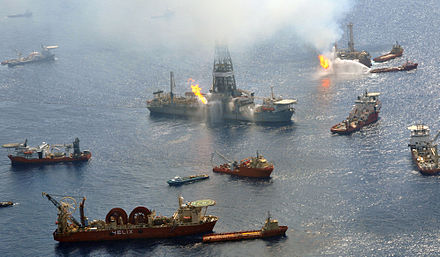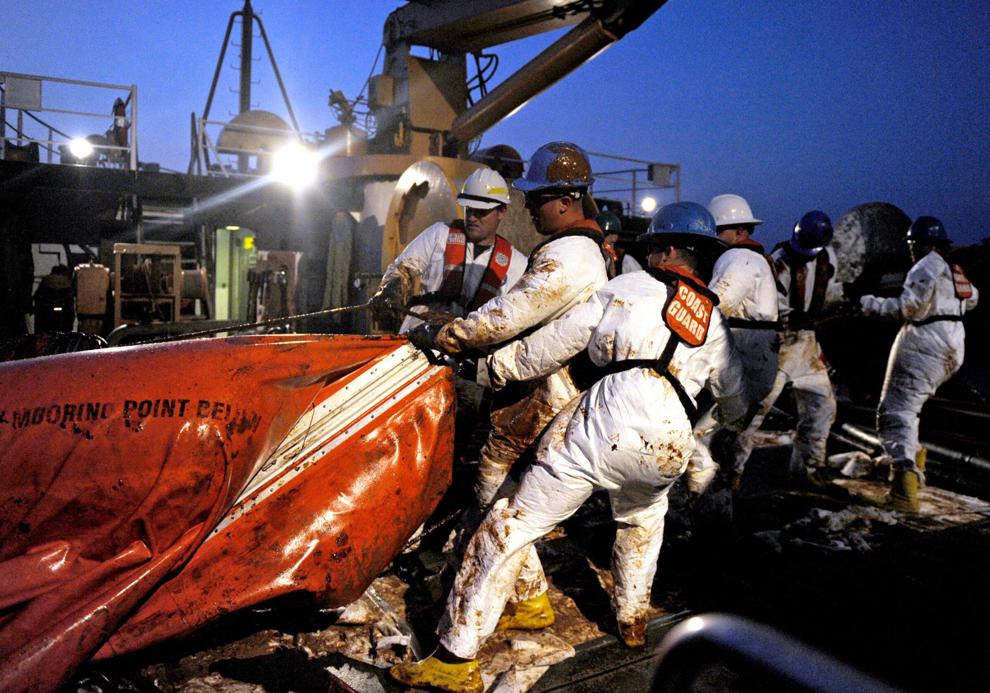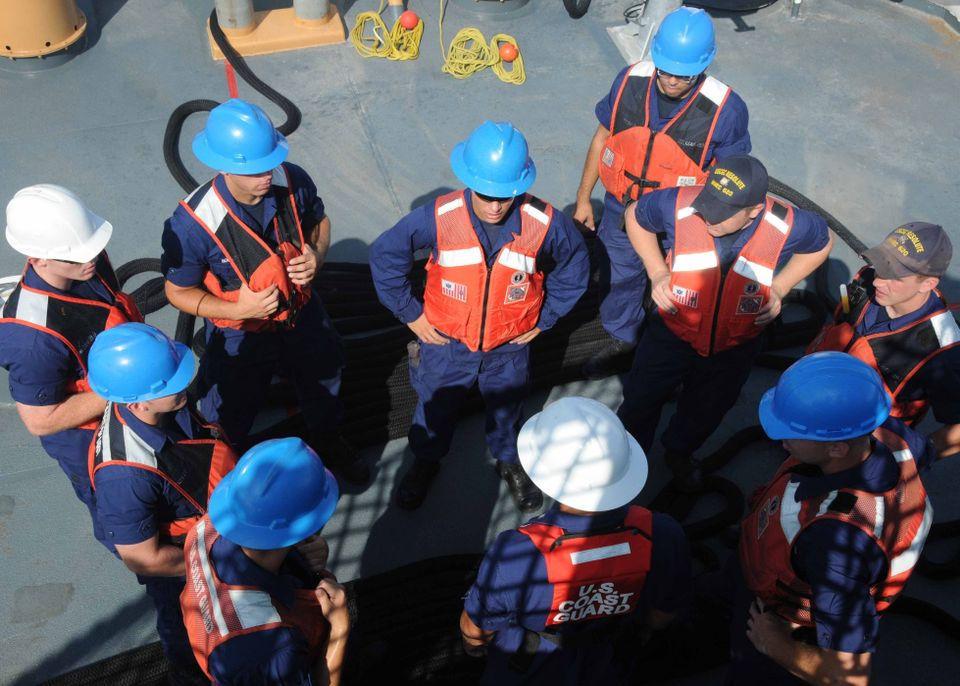
Illness has been reported in those who volunteered to help with the BP spill. Also that BP has not been welcoming to some.
Several environmental groups are petitioning federal regulators to require employers to document a wider range of illnesses, including cold- and flu-like symptoms, suffered by cleanup workers and emergency responders during oil spills. Earth Island Institute, Healthy Gulf, Alaska Community Action on Toxics and 12 other groups sent their request to the U.S. Occupational Safety and Health Administration on Monday. The petition is the latest step in a more than decade-long effort to better protect oil spill responders from a range of long- and short-term health problems suffered after BP’s Deepwater Horizon oil disaster in 2010 and other spills. The groups are urging OSHA to reconsider its decision to exempt the common cold and flu from employer recordkeeping requirements. Oil spill exposure often triggers symptoms that mimic cold and flu symptoms, and may be an early indicator of toxic exposure linked to slow-developing lung, heart, and brain illnesses, according to the petition. “OSHA’s cold and flu exemption is untenable,” said Riki Ott, an Earth Island marine toxicologist. “BP’s workforce during the 2010 response consisted largely of local fishermen and residents, many of whom are sick, dying or already dead.” BP declined to comment on the petition. In legal filings, the company has said workers’ own negligence caused their injuries, or that the contractors BP hired could be to blame.
nola.com

Jonathen Davis, U.S. Coast Guard
The illnesses have hit both the Coast Guard personnel and the volunteers. Closeness to oil.
OSHA began requiring employers to note cold and flu symptoms in 1971 to help track and respond to workplace illnesses. The requirement was eliminated in 2001 after companies complained the rule was time-consuming and unnecessary. Many Coast Guard members and workers who helped clean and contain the Deepwater Horizon spill in Gulf Coast marshes and beaches reported respiratory problems, headaches, nausea and other flu-like symptoms. Similar complaints were noted by crews deployed for the 1989 Exxon Valdez spill in Alaska. Terry Odom, a contract BP safety officer during the Deepwater Horizon spill, said many health risks were “downplayed” during cleanup operations. “Contract workers were not trained to recognize symptoms of oil-chemical exposures,” she said. “Most, including me, were not even screened for pre-existing illnesses.”

U.S. Coast Guard
Some sickness is showing up now and often in a serious way.
Odom said she was recently diagnosed with a blood disorder, asthma and chronic kidney disease – illnesses she believes stem from exposure to the spill. Thousands of Gulf Coast residents have received compensation from BP for their financial losses, but many people, including Odom, have been denied compensation or are still waiting for a response from BP. The petition notes that many legal claims against BP have been denied because they lack initial exposure data – “the very records that OSHA currently exempts.” Government health officials have tracked numerous long-term health issues reported by Deepwater Horizon spill workers, including skin rashes, difficulty breathing, headaches, nausea, depression and anxiety, and heart attacks, according to the National Institute of Environmental Health Sciences. Exposure to chemical dispersants used to break apart the Deepwater Horizon spill have also been linked to illnesses. The National Institutes of Health found that workers exposed to dispersants were more likely to experience certain symptoms – cough, chest tightness, burning eyes and lungs – than those who were not exposed to dispersants. The U.S. National Response Team, which coordinates disaster responses, has recommended increased health monitoring of spill response workers, but employers are not required to do so. “This is why we are requesting OSHA to change the rules,” Ott said. “Workers need this information and so do policy decision-makers. The law needs to change.”
A Catch 22 problem. You can’t get help because yo don’t have the data but the data was never captured.



